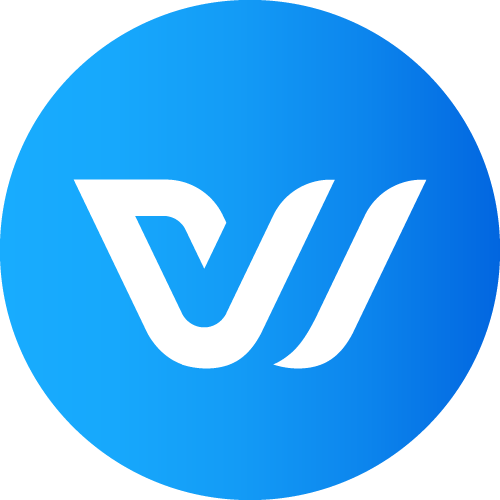$SMH can refer to two distinct entities:
- *VanEck Semiconductor ETF*: This is an exchange-traded fund (ETF) that tracks the performance of companies involved in semiconductor production and equipment. The fund has a net asset value of $222.01 and a total expense ratio of 0.35%. It's designed to provide exposure to the semiconductor industry, which includes companies like those in information technology.
- *The Sydney Morning Herald*: This is a daily tabloid newspaper published in Sydney, Australia, and owned by Nine Entertainment Co. Founded in 1831, it's the oldest continuously published newspaper in Australia, offering news, business, sports, entertainment, and lifestyle sections. The newspaper has a strong online presence, with customizable feeds and puzzles available on its website and mobile app ¹ ².
OBOL Coin’s Impact on Emerging Markets: A Catalyst for Financial Inclusion and Economic Growth
OBOL Coin’s Impact on Emerging Markets: A Catalyst for Financial Inclusion and Economic Growth
$OBOL
Emerging markets represent a vast and often untapped potential for economic development. However, they also face significant challenges, including limited access to financial services, high transaction costs, and lack of transparency in economic activities. Cryptocurrencies, with their decentralized and inclusive nature, have become a promising solution to these issues. Among these, OBOL Coin stands out for its focus on sustainability, scalability, and community-driven governance, making it uniquely positioned to transform emerging markets.
This article explores how OBOL Coin impacts emerging economies, driving financial inclusion, fostering innovation, and empowering individuals and businesses to participate in the global digital economy.
⸻
1. Financial Inclusion for the Unbanked
One of the most significant barriers in emerging markets is the lack of access to traditional banking systems. According to the World Bank, around 1.4 billion adults globally remain unbanked, with the majority residing in emerging economies. OBOL Coin can play a pivotal role in addressing this issue by offering an alternative financial infrastructure.
How OBOL Coin Helps:
• Borderless Transactions: OBOL Coin allows users to send and receive money without the need for a bank account, enabling financial participation for millions of unbanked individuals.
• Lower Costs: Traditional remittance services often charge exorbitant fees. OBOL Coin’s low transaction costs make it an affordable option for cross-border payments.
• Mobile Accessibility: With mobile penetration increasing in emerging markets, OBOL-based wallets enable users to access financial services directly from their smartphones.
Real-World Impact:
• Rural entrepreneurs can receive payments from customers or investors globally.
• Families can send remittances more efficiently, avoiding costly middlemen.
⸻
2. Reducing Barriers for Small Businesses
Small and medium-sized enterprises (SMEs) are the backbone of many emerging economies but often face significant hurdles such as limited access to credit, high fees, and complex payment systems. OBOL Coin provides a decentralized, transparent, and efficient platform that helps overcome these challenges.
How OBOL Coin Helps:
• Access to Capital: Entrepreneurs can use OBOL’s ecosystem to crowdfund or receive microloans through decentralized finance (DeFi) platforms built on its network.
• Transparent Transactions: Blockchain technology ensures that payments are traceable, reducing the risk of fraud and building trust between businesses and customers.
• Smart Contracts: Businesses can automate processes such as payment settlements, supply chain tracking, and contractual obligations.
Real-World Impact:
• A small manufacturer in Africa can use OBOL Coin to source raw materials transparently and securely.
• Local merchants in Asia can accept OBOL as payment, expanding their customer base to global markets.
⸻
3. Empowering Local Economies
Cryptocurrencies like OBOL Coin can empower local economies by providing a digital asset that is immune to hyperinflation or currency devaluation—issues that plague many emerging markets. OBOL’s decentralized nature ensures that no single entity can manipulate its value.
How OBOL Coin Helps:
• Stable Economic Activity: Users can hold OBOL as a hedge against inflation, preserving their purchasing power.
• Decentralized Finance (DeFi): OBOL’s DeFi ecosystem allows individuals to earn passive income through staking, lending, or liquidity provision, contributing to local economic growth.
Real-World Impact:
• In Venezuela, where hyperinflation is rampant, individuals can save in OBOL instead of the unstable local currency.
• Communities in South Asia can use OBOL staking rewards to fund local development projects.
⸻
4. Enabling Transparent Governance
Corruption and lack of transparency often hinder progress in emerging markets. OBOL Coin’s blockchain technology offers a transparent and immutable ledger that can be used for various applications beyond financial transactions, such as governance, voting, and public fund management.
How OBOL Coin Helps:
• Decentralized Governance: OBOL’s community-driven model allows individuals to participate in decision-making, ensuring accountability and inclusivity.
• Public Fund Tracking: Blockchain technology can track the use of public funds, reducing corruption and ensuring that resources reach their intended recipients.
Real-World Impact:
• Local governments can implement OBOL-based systems for transparent allocation of development funds.
• Grassroots organizations can use OBOL’s governance tools to empower communities and drive social change.
⸻
5. Promoting Innovation and Technological Adoption
Emerging markets are often seen as fertile ground for technological adoption due to their lack of entrenched legacy systems. OBOL Coin provides a platform for innovation, allowing developers, entrepreneurs, and technologists to create solutions tailored to local needs.
How OBOL Coin Helps:
• Developer-Friendly Ecosystem: OBOL’s compatibility with Solidity and its scalable infrastructure make it an ideal platform for building decentralized applications (dApps).
• Incentivized Participation: OBOL’s staking and reward mechanisms encourage developers to contribute to the ecosystem.
Real-World Impact:
• Startups in Latin America can create localized dApps for supply chain management or microfinance.
• Innovators in Africa can use OBOL’s smart contract platform to develop agricultural or educational tools.
⸻
6. Overcoming Challenges in Emerging Markets
Despite its potential, there are challenges to OBOL Coin adoption in emerging markets, including regulatory hurdles, technological literacy, and infrastructure limitations. However, OBOL is actively addressing these challenges:
Regulatory Hurdles:
• OBOL Coin’s decentralized governance model ensures compliance with global standards while promoting local autonomy.
• Collaborative efforts with governments and institutions help align OBOL’s operations with local regulations.
Technological Literacy:
• OBOL provides educational resources and workshops to teach individuals how to use its ecosystem effectively.
• User-friendly interfaces and mobile accessibility simplify onboarding for non-technical users.
Infrastructure Limitations:
• OBOL’s energy-efficient PoS mechanism ensures that its network operates smoothly even in regions with limited electricity or internet connectivity.
⸻
7. A Vision for the Future
OBOL Coin’s focus on sustainability, security, and community-driven governance positions it as a transformative force in emerging markets. As adoption grows, OBOL has the potential to:
• Bridge the gap between traditional and decentralized finance.
• Empower individuals and businesses to participate in the global economy.
• Drive sustainable development and innovation tailored to local needs.
By prioritizing accessibility, inclusivity, and transparency, OBOL Coin is not just a financial tool but a catalyst for lasting change in emerging markets.
⸻
Conclusion
Emerging markets are poised to benefit significantly from OBOL Coin’s innovative blockchain ecosystem. By addressing challenges such as financial exclusion, corruption, and lack of economic opportunities, OBOL Coin provides a pathway for individuals and businesses to thrive in a digital-first world.
As OBOL continues to expand its reach and capabilities, it has the potential to unlock unprecedented opportunities for economic growth, social empowerment, and technological advancement in the regions that need it most. The future of OBOL Coin and emerging markets is one of mutual growth and shared prosperity.

Understanding the Use of Crypto Wallets
As cryptocurrencies like Bitcoin, Ethereum, and others gain mainstream attention, the need for secure and accessible storage solutions has become increasingly important. This is where crypto wallets come into play. A crypto wallet is a tool—either physical or digital—that allows users to store, manage, and interact with blockchain assets.
What Is a Crypto Wallet?
A crypto wallet doesn't actually store your cryptocurrencies in a traditional sense. Instead, it stores the private and public keys necessary to access and control your digital assets on the blockchain. These wallets allow users to send, receive, and manage cryptocurrencies securely.
There are two main types of crypto wallets:
1. Hot Wallets – These are connected to the internet and are more convenient for regular transactions. Examples include mobile apps (like Trust Wallet), web wallets (like MetaMask), and desktop wallets.
2. Cold Wallets – These are offline and are considered safer for long-term storage. Examples include hardware wallets (like Ledger or Trezor) and paper wallets.
Key Functions of a Crypto Wallet
• Storing Private Keys: Your private key is your proof of ownership for the crypto. If someone else has it, they can control your assets.
• Sending and Receiving Crypto: Crypto wallets allow you to send and receive funds via wallet addresses.
• Tracking Balances: Wallets help users track the balance and transaction history of their cryptocurrency.
• Interfacing with DApps: Many wallets like MetaMask are gateways to decentralized applications (DApps) and DeFi (Decentralized Finance) protocols.
Security Considerations
• Always back up your wallet’s seed phrase or recovery phrase—usually 12 to 24 words.
• Never share your private key or seed phrase with anyone.
• Consider using a cold wallet for significant holdings to reduce risk from hacks.
• Use multi-factor authentication (MFA) and keep software updated.
Practical Use Cases
• Investment and Trading: Investors use wallets to store and trade cryptocurrencies.
• Payments: Some businesses accept crypto payments through wallet integrations.
• NFT Management: Wallets can hold non-fungible tokens (NFTs) and interact with NFT marketplaces.
• DeFi Participation: Wallets are essential for accessing decentralized finance applications such as lending platforms and decentralized exchanges (DEXs).
Conclusion
Crypto wallets are the cornerstone of managing digital assets securely. Choosing the right wallet—hot or cold—depends on your needs, whether you're an active trader or a long-term holder. Understanding how these wallets work and how to use them safely is crucial for anyone involved in the world of cryptocurrency.



 最低價
最低價 最高價
最高價 








































![Phoenix Global [old]](https://img.bgstatic.com/multiLang/coinPriceLogo/c8b510c694719f913b408d39f842124b1701622934202.png)

Helium Mobile社群媒體數據
過去 24 小時,Helium Mobile社群媒體情緒分數是 3,社群媒體上對Helium Mobile價格走勢偏向 看漲。Helium Mobile社群媒體得分是 0,在所有加密貨幣中排名第 579。
根據 LunarCrush 統計,過去 24 小時,社群媒體共提及加密貨幣 1,058,120 次,其中Helium Mobile被提及次數佔比 0.01%,在所有加密貨幣中排名第 420。
過去 24 小時,共有 296 個獨立用戶談論了Helium Mobile,總共提及Helium Mobile 69 次,然而,與前一天相比,獨立用戶數 增加 了 5%,總提及次數增加。
Twitter 上,過去 24 小時共有 0 篇推文提及Helium Mobile,其中 0% 看漲Helium Mobile,0% 篇推文看跌Helium Mobile,而 100% 則對Helium Mobile保持中立。
在 Reddit 上,最近 24 小時共有 24 篇貼文提到了Helium Mobile,相比之前 24 小時總提及次數 減少 了 0%。
社群媒體資訊概況
3